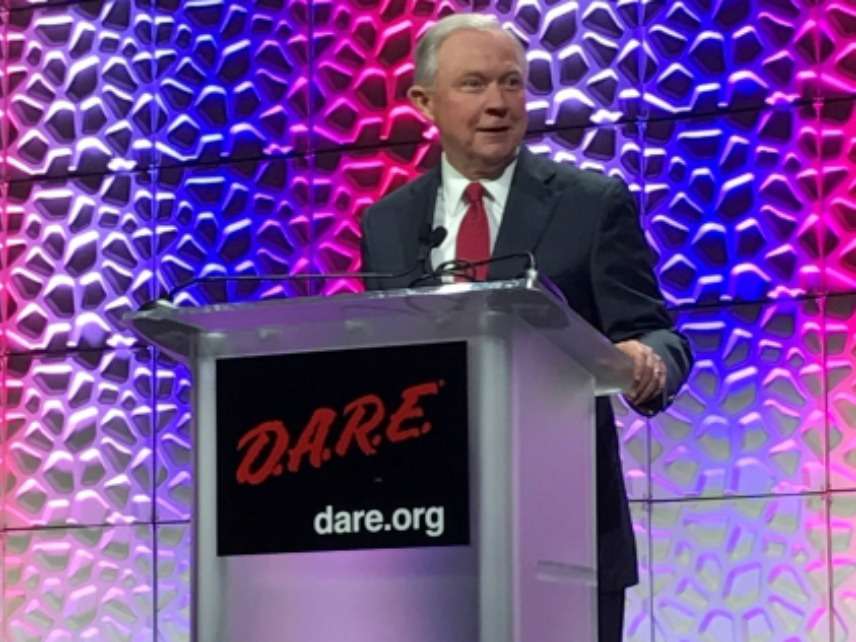Even Without the Rider That Protects Medical Marijuana, a Pot Crackdown Is Unlikely
Despite his fear and loathing of cannabis, Jeff Sessions has good reasons to tolerate legalization.

As we approach the end of 2017, it's not clear whether Congress will renew the Rohrabacher-Blumenauer amendment, which prohibits the Justice Department from interfering with state medical marijuana laws. James Higdon, writing in Politico Magazine, argues that the demise of the spending rider would be "a major boost" for Attorney General Jeff Sessions' "yearning to battle legal marijuana," leaving him "free to unleash federal drug agents" on state-licensed growers and distributors. That gloss overestimates the amendment's significance and underestimates the factors that have deterred Sessions from cracking down on state-legal marijuana, notwithstanding his well-known fear and loathing of the plant.
The medical marijuana amendment, which was first enacted in December 2014 and has been renewed each year since then, has proven a significant barrier to DOJ harassment of patients and providers. A federal appeals court has ruled that the amendment bars prosecution of medical marijuana growers and suppliers whose actions comply with state law, including continued pursuit of cases initiated before the amendment took effect. Sessions himself concedes that the rider ties his hands in those respects. The protection also extends to civil actions aimed at shutting down dispensaries. Sessions, not surprisingly, resents the restraint, and in May he urged Congress to let the amendment expire.
Yet the Rohrabacher-Blumenauer amendment does not apply to state-licensed businesses that supply the recreational market, which Sessions nevertheless has refrained from targeting. Sessions says he is sticking to the Obama administration policy of going after state-legal cannabusinesses only if they impinge on "federal law enforcement priorities" such as preventing interstate smuggling and sales to minors. While that policy leaves a lot of wiggle room for an attorney general inclined to enforce the federal ban on marijuana more aggressively, Sessions so far has not taken advantage of it. There are several good reasons for his reticence:
1. Most Americans think marijuana should be legal, and an even larger majority, including most Republicans, says the decision should be left to the states.
2. Sessions' boss, who is already irked at him because of the Russia investigation, has repeatedly said states should be free to legalize marijuana for medical or recreational use (although he is less enthusiastic about the latter option).
3. Marijuana is legal for recreational use in eight states, home to one in five Americans. Medical marijuana is legal in 29 states. A cannabis crackdown would anger officials from those states, creating political headaches that neither Sessions nor Donald Trump needs.
4. While the DOJ could close down conspicuous cannabusinesses easily enough, maybe just by sending some threatening letters, it does not have the resources to prevent home cultivation, which is legal in seven of the eight states that allow recreational use. A crackdown would shift the supply from a few visible and regulated sources to myriad uncontrollable growers.
Whatever happens with the Rohrabacher-Bluemenauer amendment, these factors would continue to discourage Sessions from giving his anti-pot prejudices full rein.


Show Comments (11)